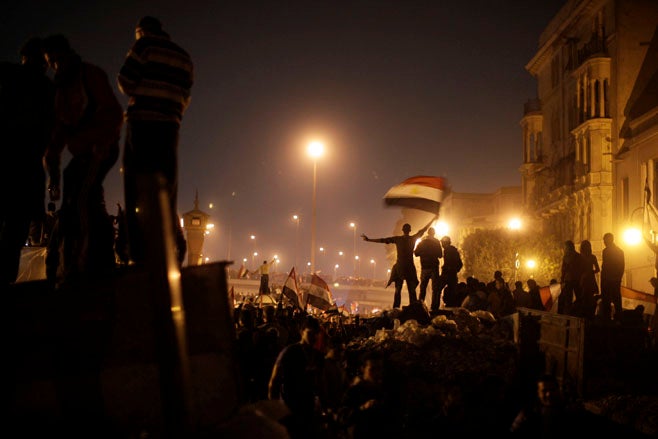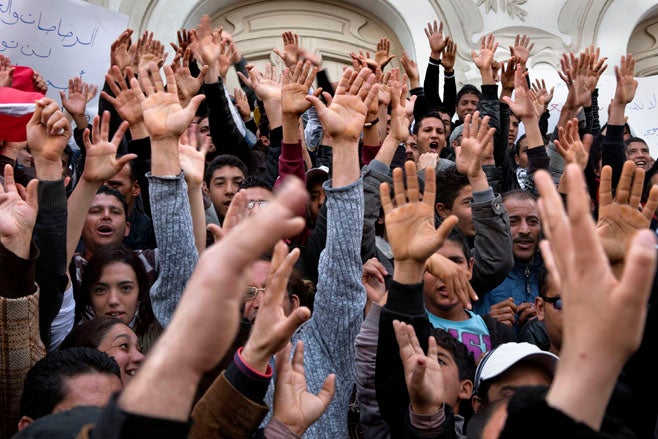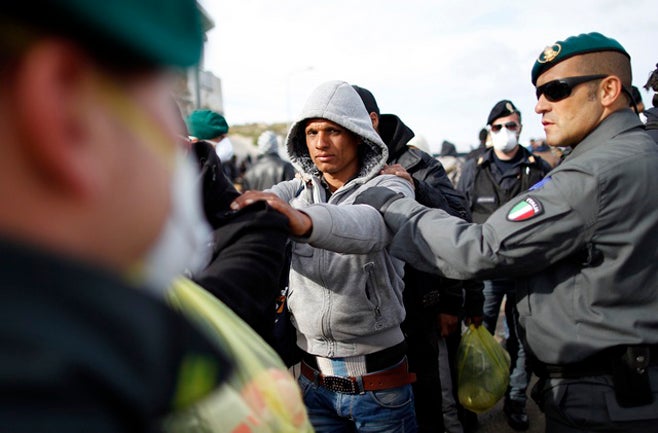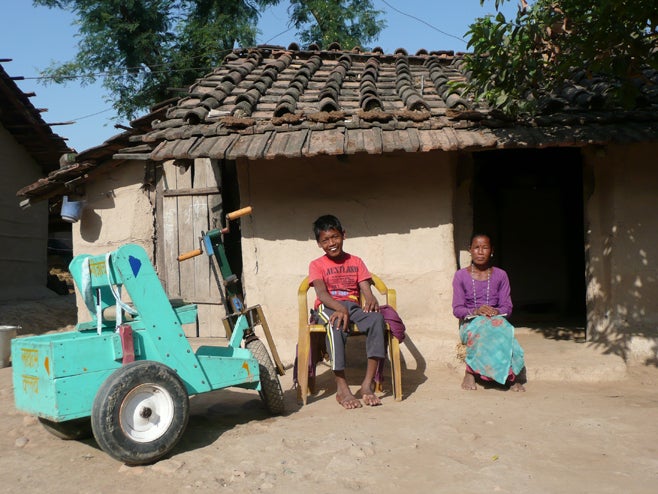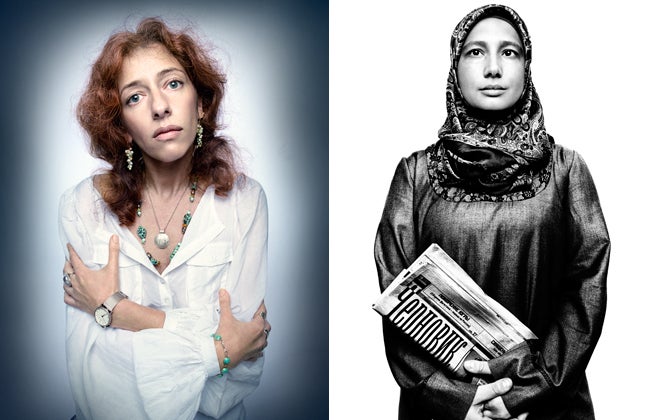The human rights situation in Malawi deteriorated significantly in 2011, with President Bingu wa Mutharika’s government acting in an increasingly repressive manner. Fuel and foreign currency shortages and increasing food prices have taken a toll on the country, reversing the economic gains made during Mutharika’s first term in office.
The government’s failure to adequately address the country’s economic problems and the clampdown on its critics triggered a protest by civil society activists. The government reacted to these street protests with increasing heavy-handedness.
Freedom of Expression and Assembly
In the past year Mutharika signed repressive new legislation, including Section 46 of the penal code, which allows the minister of information to ban publications deemed “contrary to the public interest.” The president also signed the Injunctions Law, which prevents Malawians from filing civil suits against government officials. These new laws, which were severely criticized by civil society activists, limit the ability of the media to operate freely and deny Malawians the protection of the law.
Authorities also intimidated and harassed university lecturers and students who have been at the forefront of criticizing the government’s poor human rights and governance records. In September plainclothes police interrogated staff of the Polytechnic University of Malawi about the existence of a political group, Youth for Freedom and Democracy (YFD). A week later Robert Chasowa—vice-president of YFD, university student, and outspoken government critic—was found dead at the Polytechnic campus with a deep cut to his head. Although police ruled his death a suicide, civil society activists accused the government of involvement in Chasowa’s death.
In February the inspector general of police, Peter Mukhito, interrogated University of Malawi lecturer Blessing Chisinga after he delivered a lecture on the causes of mass protests in Malawi. In reaction, university lecturers boycotted classes, demanding an apology from Mukhito and calling on the authorities to respect academic freedom. The Chancellor College section of the University of Malawi’s academic staff union supported the boycott and Jessie Kabwila Kapusula, the union’s acting president, received anonymous death threats. Kapasula and three colleagues were later dismissed by the university for supporting the boycott.
The government has also shown increasing intolerance towards peaceful demonstrations. On October 11, police arrested five civil society activists—Habiba Osman, Billy Mayaya, Brian Nyasulu, Ben Chiza Mkandawire, and Comfort Chiseko—on charges of “holding an illegal demonstration.” They were taking part in a small demonstration outside parliament, calling on Mutharika to hold a referendum, for his resignation, and an early election. The activists were released on bail five days later.
The most brutal crackdown on a peaceful demonstration took place on July 20 when police fired live ammunition and tear gas at unarmed demonstrators and bystanders Lilongwe, the capital, Blantyre, and Mzuzu, killing 19 and leaving scores more wounded. The police also arrested around 500 demonstrators. The demonstrators were protesting deteriorating economic conditions and increasing repression by the authorities. On August 10 Mutharika said he would establish an independent commission of inquiry into the July killings. However, at this writing the government had not set up the commission and there had been little progress in investigating and bringing to account those responsible for the killings.
Further civil society vigils and demonstrations were planned for August 17 and 18 to commemorate those killed in July and to raise concerns about the economy and human rights situation. These nationwide protests were indefinitely postponed by the organizers after the High Court issued an injunction banning them. Persons believed to be affiliated with the ruling Democratic Progressive Party (DPP) had applied for the injunction.
Human Rights Defenders and Journalists
There is a climate of fear in the country as journalists and civil society activists who attempt to report on the human rights situation have come under increasing attack from security forces and supporters of the DPP. Several human rights activists have received death threats and been forced to go into hiding. In September unknown assailants threw petrol bombs at the homes and offices of several government critics, including activists Mcdonald Sembereka and Rafiq Hajat and opposition politician Salim Bagus. Human rights activists alleged that the government and DPP supporters orchestrated the attacks. At this writing the police had neither conducted any investigations nor arrested those responsible for the attacks.
Freedom of Press
Police and DPP supporters have also been implicated in the intimidation, arbitrary arrest, and beating of journalists attempting to report on political events in the country.
On October 11, police summoned deputy editor Innocent Chitosi and reporter Archibald Kasakura, both of Malawi News, as well as George Kasakula of Weekend Nation, after the two papers published stories about the death of student activist Chasowa. On September 12, police arrested journalist Ernest Mhwayo for allegedly taking pictures of President Mutharika’s farm without permission.
Police conducted a violent crackdown on journalists attempting to cover the July protests. According to the Media Institute of Southern Africa, police beat 14 journalists, arrested three, and harassed 10 more, as they attempted to cover the protests in Lilongwe and Blantyre. Authorities also prevented independent radio stations from reporting on the protests. On July 20 the Malawi Communications Regulatory Authorities, the state broadcasting regulator, directed three independent radio stations, Capital FM, Joy Radio, and Zodiak Broadcasting Station (ZBS), to stop live coverage of the demonstrations because this was viewed as perpetuating violence. Although all the stations complied with the directive, they were taken off air for several hours on the following day, a move that denied Malawians vital information about how best to negotiate a dangerous situation.
Key International Actors
The deteriorating human rights situation in the country has led to increasing concern from the international community and donors. In October the Malawian government faced widespread international criticism and condemnation by local and international civil society groups when it invited and hosted Sudanese President Omar al-Bashir at the Common Market for Eastern and Southern Africa (COMESA)summit in Lilongwe. Despite being a state party to the International Criminal Court, Malawi did not arrest al-Bashir—who is wanted by the court on charges of genocide, crimes against humanity, and war crimes—upon his arrival in the country.
In August the United Nations pushed for dialogue between the Malawian government and civil society activists to address the political and economic crisis in the country. However, dialogue broke down after human rights activists alleged that the government orchestrated attacks against them, accusations that the government rejected.
In July the United Kingdom, Malawi’s biggest bilateral donor, withheld US$30 million of direct aid in reaction to the expulsion of the UK high commissioner, Fergus Cochrane Dyet, and concerns over the deteriorating human rights situation. President Mutharika’s brother, Justice Minister Peter Mutharika, visited the UK in October in an attempt to repair relations between the two governments. On July 26 the United States government said it would suspend a $350 million aid package in reaction to the July killings of 19 protesters and bystanders.
